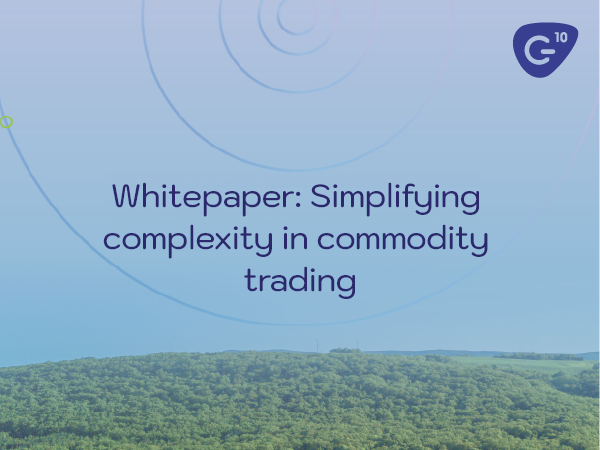The coffee industry has been increasingly focused on sustainability for some time, with voluntary certification schemes such as Fairtrade and Rainforest Alliance (which absorbed UTZ), helping to grow consumer awareness. Changing production and demand patterns, and increasingly, new legislation are also driving the change.
Why is coffee sustainability on the rise?
Sustainability is being driven by increasing legislation, particularly within the EU, where several Environmental, Social & Governance initiatives have led to those involved in supply chains being compelled to clean up and improve their reporting on issues ranging from human rights to biodiversity. The major piece of legislation affecting coffee importers right now is the EU Deforestation Regulation. This legislation means that companies will no longer be able to sell coffee, or several other products, on European markets unless they can show that it does not originate from land that was deforested after 31 December 2020 and that it did not lead to forest degradation. Coffee merchants will therefore need to be able to trace beans back to the farm of origin and provide details such as geolocation data to the relevant authorities for verification.
Consumers are also driving the change in coffee, by taking an interest in sustainability and provenance, but also through a growing interest in single-origin crops and new bean varieties. Indeed, 43% of global coffee consumers state that they are influenced by “ethical, environmentally friendly, or socially responsible coffee options”.
And finally, sustainability is a growing trend in coffee production by necessity. Coffee can only be grown at altitude in a tropical and sub-tropical zone. This means that crops are vulnerable to the effects of climate change, including warming, storms, and particularly droughts.
Although robusta and arabica beans continue to dominate global markets, climate resilience has not been considered an important trait to cultivate in these crops, so a small but growing number of producers are diversifying into different, more resilient, beans. For example, liberica has entered the spotlight in recent months thanks to its deep root system allowing access to deeper water than arabica and robusta varieties, improving its climate resilience.
Provenance in coffee supply chains
Each of these trends individually are a call for greater provenance in coffee supply chains but taken together they represent a sea change in traceability requirements. Consumer interest in single origin crops and the rise in new beans point to a likely increase in specialty coffee. This means an increase in micro-lots across the supply chain, all of which will need to be managed, recorded, and traced.
Whatever the lot size, any sustainability certifications also need to be managed across your operations and assigned to the correct lots if any blending, splitting, roasting or packaging occurs. And this is alongside the quality assurance, cupping and taste profiles that also need to be recorded for each.
The new EU requirement to trace beans back to their point of origin adds to the above lot data requirements, so as long as your suppliers can provide the information in the first place, and you have the right coffee CTRM and Commodity Management systems, this could be as simple as adding data fields to your existing system. But if not, the data challenge could prove significant.
Is your coffee CTRM up to the task?
With traceability now front-and-centre in coffee supply chains, many legacy CTRM systems lack the functionality to manage the full trade lifecycle, especially when incorporating sustainability certificates, geolocation data and taste profiles. And they also often lack the integrations to other systems that would enable your team to manage trading, risk, traceability, and logistics across multiple connected systems with ease.
This is where coffee Commodity Management Systems have the advantage. These systems are designed to incorporate all the different areas of trading or procurement, logistics, and risk management in one place. And good systems such as Gen10’s CommOS incorporate certificate management as standard so that you can manage any sustainability certificates alongside the relevant lot as beans are processed through your operations. You can also integrate CommOS with a wide range of other systems, from ERP and general ledger technology to satellite imagery systems. These integrations allow you to view the exact provenance of a particular shipment directly within the system your traders are using to price contracts and operators use to allocate lots.
This means that traceability and provenance become a core part of your coffee trading operations, that you can realise the full price premium of any sustainability or quality information, and your logistics team can allocate stock in the most efficient and cost-effective manner. All whilst protecting your organisation from a wide range of risks, including the new legislative risk that arises from the EU Deforestation Regulation.
Find out more about how CommOS is developed to support coffee traders.
Want to read more?
Subscribe now for monthly updates
By submitting your details you agree that we can store your data and communicate with you. You can opt out of these communications at any time. Read all in our Privacy Policy.



